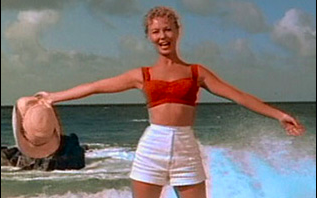In the depths of the Great Depression, Franklin Roosevelt rallied his countrymen by famously stating that “the only thing we have to fear is fear itself”. How right he was, and how those words resonate for Americans today who for nearly a year have lived in a climate of fear owing to the unseen enemy of coronavirus.
So, what can we say about the national state of mind as we pass the milestone of that most American of all holidays, Thanksgiving, and soldier on toward the end of an ugly 2020?
Americans are an amazingly resilient and naturally optimistic people. Despite the massive social and economic damage caused by the lockdowns, most people are confident that they and their country will somehow get through this crisis.
Nonetheless there is a deep distrust of the leadership being provided at every level from President to governors to mayors, albeit with wide variations from state to state.
There is great dissatisfaction with the inadequate and often contradictory information about the virus and how to deal with it. People understand the difference among “cases,” “hospitalizations,” and “deaths,” but there is widespread suspicion that media and government alike prefer focusing on “cases” which offer bigger, scarier numbers useful for supporting the lockdown narrative while the other two categories do not.
There is universal anger at politicians who impose severe, job-killing restrictions on ordinary citizens while exempting themselves, and there is growing consciousness of how the pandemic has greatly exacerbated income inequality.
The national mood surely was not helped when, just a week before Thanksgiving, the Center for Disease Control (CDC) “strongly recommended” that Americans not travel during the Thanksgiving holiday owing to recent spikes in Covid cases. The same advisory said that no one who has not been part of the household for fourteen days should be a dinner guest.
That bad, really? Bad enough to require disinviting grandmother or your Marine son who is heading home on leave?
Overall, Americans are responding that a lockdown regime that is tougher on churches than on casinos and quite comfortable intruding into the most private aspects of human life is not—putting it mildly—to their liking. Civil disobedience at the grassroots is not far-fetched.
Yet there is good reason to think that such dire scenarios need not come to pass. The country has been down this road before.
For perspective, this writer—like many of you who are reading this—is old enough to remember the horrific divisiveness and calamities of 1968. Remember that bleak night in Los Angeles when in the space of minutes tears of joy turned to tears of despair as an unseeing Robert Kennedy lay in a pool of his own blood on the kitchen floor of the Ambassador Hotel?
Many of us “young idealists” in that moment felt hope for America had been extinguished. But we were wrong. With characteristic American resilience, we and the country pushed ahead with living. It wasn’t always “Morning in America,” but the good days were much more numerous than the bad, and some were truly grand.
Americans have never believed, and never will, that theirs is a terrible country with a terrible past as some suggest. We know that America is an exceptional country—not just because of its awesome beauty, vast opportunity, and fundamentally decent people, but also because of our determination never to give up those liberties our forebears fought and died to attain and protect.
Recently as I watched a glorious sunset slipping behind the majestic Rocky Mountains, my reverie was enhanced by the voice of the delightful Mitzi Gaynor singing “Cock-Eyed Optimist” from South Pacific.
“They say the human race is falling on its face and hasn’t very far to go,” the Nellie Forbush number begins, only to pivot at the end: “But I’m stuck like a dope with a thing called Hope and I can’t get it out of my heart, not this heart.”
As Americans from all walks of life sat down this week for Thanksgiving dinner with at least some of those they care about—government edicts be damned—and now set their sights on the inextinguishable joy of Christmas, I am confident the great majority of us are likewise feeling that eternally buoyant “thing called Hope.”
Bill Moloney, a Centennial Institute fellow and former Colorado Commissioner of Education, covers national and international politics for the America blog.
So the human race has had it? Not quite. Mitzi Gaynor as Nellie Forbush in the 1958 film version of Rodgers and Hammerstein’s South Pacific
